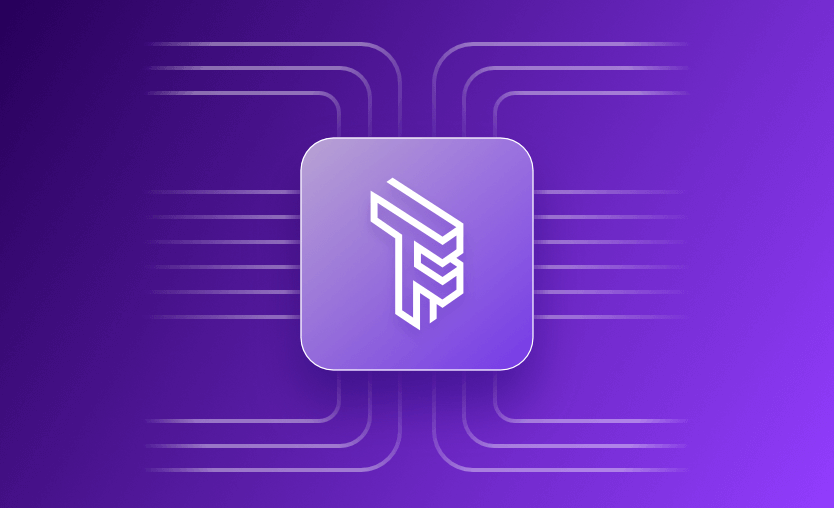On August 10, 2023, HashiCorp announced that after ~9 years of Terraform being open source, they were suddenly switching it to a non-open source BSL license.
In response to HashiCorp’s move, Spacelift, along with many other companies joined forces to create an initiative called OpenTF with a manifesto to ensure Terraform always remains open source. The community response to the OpenTF initiative has been enormous! The manifesto has already been signed by over 120 companies, 10 projects, and 500 individuals ready to pledge their time and resources to keep Terraform open source. It has amassed over 25,000 stars on the GitHub repository, and the numbers are growing daily!
But the manifesto was not just a pledge to support Terraform as an open-source tool; it also set out two key aims. The first was to appeal to Hashicorp to return Terraform to the community and abandon the planned license change. Secondly, if the license was not reverted, the manifesto outlined a plan to fork the Terraform project into an OpenTF fork.
OpenTF has now forked Terraform!
Since no reversal has been done, and no intent to do one has been communicated, OpenTF is thrilled to announce we have created a fork of the legacy MPL-licensed Terraform under the name OpenTF. Over the last week, Spacelift engineers have been working with teams at other companies, including competitors, to make this project a reality. We want to keep OpenTF truly open-source and governed by the community for the community.
OpenTF stands for the following ideals:
- True Open Source: Maintained under a well-known and trustworthy license that guarantees stability.
- Community-Driven: Governance of the project is handed to the community, with a regular review of pull requests based on their merits. Proposed changes will follow a transparent public RFC process.
- Impartiality: Features and fixes are judged on their community value — not on their value to a specific vendor.
- Modularity and Layering: The project will be kept layered and modular to enable a dynamic ecosystem of tools and integrations.
- Backward Compatibility: Keeping it backward-compatible will ensure existing code can create value in the future.
OpenTF will become a part of the Linux Foundation
OpenTF completed all documents required for it to be accepted into the Linux Foundation, with the ultimate goal of including OpenTF in the Cloud Native Computing Foundation (CNCF). We believe that making a foundation responsible for the project ensures it remains open-source and vendor-neutral.
Many tools we use in our Terraform workflows exist purely because Terraform has been open-source from the outset. That is why Spacelift and the other OpenTF signatories believe the only viable future for Terraform is OpenTF.
OpenTF Roadmap
OpenTF has been working on this fork for several days already, with over 10 engineers across multiple companies. Here’s where it’s at now:
- The repository-wide rename to OpenTF is almost complete.
- Initial steering committee members have been selected.
- Community documents have undergone cleanup and initial adjustment.
- CI/CD pipelines and multiple testing harnesses of end-to-end and snapshot tests are now working and green (this ensures backward compatibility).
OpenTF plans to publish the repository soon after it has been officially accepted into a foundation and has implemented foundational community guardrails and processes.
In the spirit of being as open as possible, OpenTF has created a public repository tracking its progress towards significant milestones. You can subscribe to the issues there to be notified as soon as the fork is public. If you have any questions, please create additional issues on that repository – the team behind OpenTF will try to respond as quickly as possible.
FAQ:
When will the OpenTF fork be accessible?
The plan is to publish the fork within 1-2 weeks. While this doesn’t mean an immediate release, the repository itself will be accessible, with alpha and stable releases following shortly thereafter.
Can OpenTF seamlessly replace legacy Terraform?
Yes, OpenTF is designed to be a drop-in replacement for legacy Terraform.
Will OpenTF be compatible with Terraform providers and modules?
Yes, OpenTF will be fully compatible with providers and modules that Terraform supports.
What will be the first release of OpenTF?
The first release, marked 1.6.0-alpha, will be a forked version of the most recent commit still licensed under the MPL.
Who is responsible for maintaining OpenTF? Is there sufficient support?
The OpenTF initiative has pledges from 4 companies, equivalent to 14 full-time engineers. This commitment is expected to double in the coming weeks.
How can I contribute to OpenTF?
Companies interested in pledging resources can email us or submit PRs on the manifesto repository. Currently, the best way for anyone to contribute is to spread awareness. Once the repository is public and the contribution process is formalized, coding contributions will also be welcomed.
Does OpenTF have a public roadmap? Can I influence it?
You can find the current public roadmap on this GitHub repository. We will introduce the RFC process for you to be able to contribute to the roadmap as soon as possible.
Will OpenTF be compatible with future Terraform releases?
OpenTF is committed to being 100% interoperable with future Terraform releases unless the community desires change.
Can OpenTF change its licensing model in the future?
Once OpenTF becomes part of the foundation, it’s governed by the foundation and the project community. Its licensing model cannot change.
The Most Flexible CI/CD Automation Tool
Spacelift is an alternative to using homegrown solutions on top of a generic CI. It helps overcome common state management issues and adds several must-have capabilities for infrastructure management.
